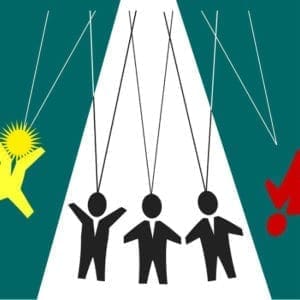 With digital technology rapidly evolving every year, it’s hardly surprising that the Internet has become the dominant source of bookings in the hospitality industry. Online travel agencies seem to have especially benefitted from the growth of these platforms. And while it’s true that several OTAs invested early in improving their website’s authority, that isn’t the only reason they enjoy such a prominent status today.
With digital technology rapidly evolving every year, it’s hardly surprising that the Internet has become the dominant source of bookings in the hospitality industry. Online travel agencies seem to have especially benefitted from the growth of these platforms. And while it’s true that several OTAs invested early in improving their website’s authority, that isn’t the only reason they enjoy such a prominent status today.
The onset of cloud computing and affordable enterprise software, coupled with the rise of a younger millennial population enabled independent hoteliers to begin to gradually displace the larger international chains as the preferred choice of accommodation for modern guests. However, these factors also contributed to further fragmentation of an industry where disorder was already running rampant.
OTAs made things easier for consumers by creating an environment in which they could quickly find the type of accommodation they’re looking for, regardless of the destination. Moreover, rate parity clauses enforced by these agencies ensured that guests would find the ‘best’ price on their portal. Unsurprisingly, these factors paved the way for OTAs to capture large portions of the global travel market. In the USA alone, online travel agencies are projected to enjoy a majority 52% share of the market by 2017 – in Europe, as much as 70% of hotel bookings made originate from searches on OTAs!
Are these final days of rate parity?
Probably the most controversial aspect of partnering with an OTA, rate parity agreements have seen online agencies and hotels embroiled in ferocious tug of war for the past several years. While clauses similar to rate parity agreements were prevalent in a number of industries, the situation in hospitality was a little strange considering how long these agreements continued to linger – especially with all the criticism the policies attracted from regulators.
However, things seem to be changing now with legislative bodies beginning to stamp their authority on the practice. The 2nd of April 2015 was a special day in this regard, with the German Federal Cartel Office dispatching a cease-and-desist order to Booking.com regarding their rate parity clauses. This was after the German government had successfully pressured HRS – a leading OTA in Europe – to delete their parity clauses.
Not long after, the French National Assembly passed the ‘Law Macron’, essentially putting an end to all sorts of rate parity clauses. With their entrepreneurial freedom back, hotels could now offer lower rates on other offline as well as online booking portals.
Following these developments, governments in other parts of Europe such as Sweden and Italy are also beginning to consider a similar approach to the rate parity issue. Jackie Grech, former policy director at the British Hospitality Association, has been particularly vocal in her plea for change. “With both German and now French governments setting precedents, we encourage U.K. regulators and government to take up the issue to put the power back into customers’ hands as they shop around online for the best deals,” she said.
While there hasn’t been as much of an indication that a similar scenario will unfurl in the USA anytime soon, it’s no secret that rate parity has few fans in the country – over 30 law suits were filed barely two years ago, with several high-profile organizations such as Marriott, InterContinental, Booking.com, Expedia and many more involved. There seems to be a growing consensus that the country will eventually follow in the same direction as Europe, and although this isn’t a certainty, it’s definitely an encouraging sign for hoteliers.
As hotels in parts of Europe begin to offer different rates on different portals, international travelers will learn to scout for the best rate through meta-search sites. With its growing popularity, travelers will begin to expect and demand a similar ‘rate-shopping’ experience in the United States. While these changes may take several years to be fully implemented and enforced, there are positive signs in countries that have already curbed parity agreements. In fact, France projects a 2% fall in OTA bookings and a 2% increase in direct bookings by 2017, while in Germany, OTA bookings are expected to fall by 4% while direct bookings are expected to increase by 3% within the same period.
So to directly answer the question we posed at the top, OTAs will certainly witness some uncertainty as they enter the new year – especially in Europe where their bookings are estimated to drop by 2% in favor of direct bookings. In the meantime, hoteliers can circumvent rate parity agreements in certain scenarios and continue to attract guests with special rates without breaking any agreements. They can do this by offering special packages, rewarding loyalty, and following a few other measures.
About the author
Kiran Sunny Varghese is a content writer at Hotelogix – a cloud-based PMS provider – with an undying enthusiasm to learn about the latest in travel trends and cutting-edge technology that can make a difference to global hospitality. He completed his higher education in Bangalore, India and enjoys fine arts during his free time.















